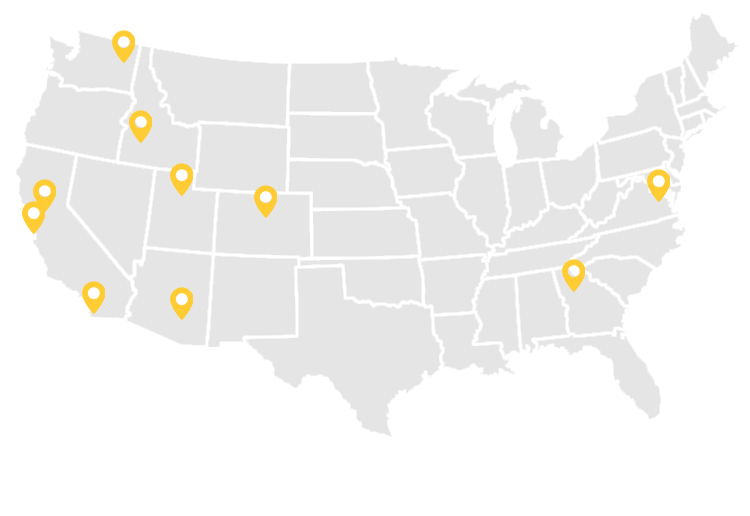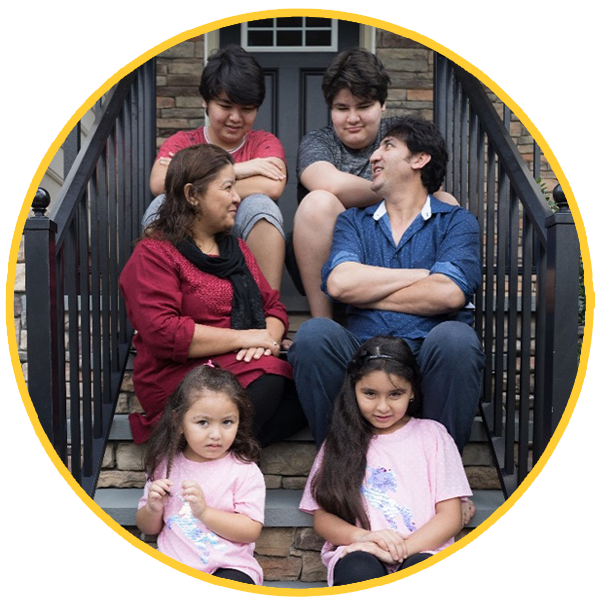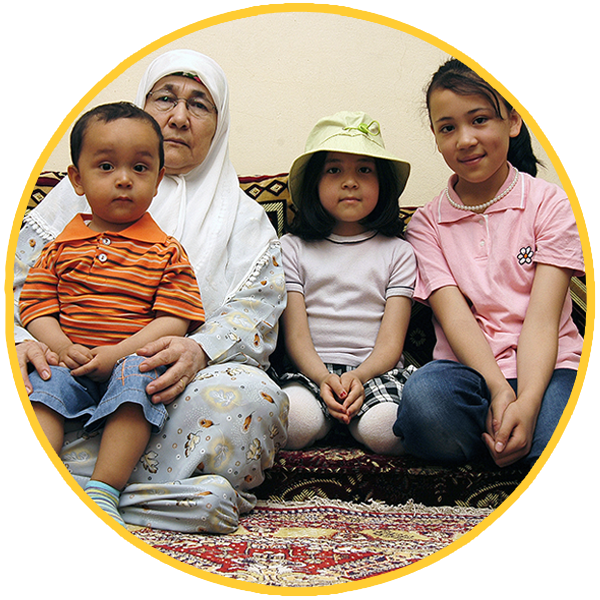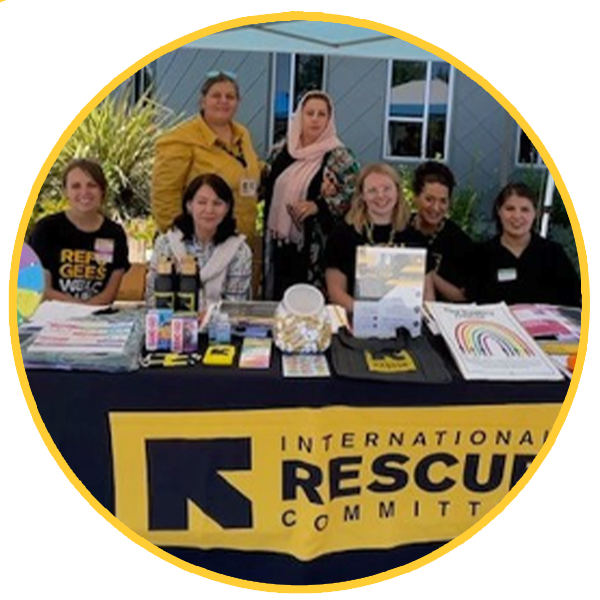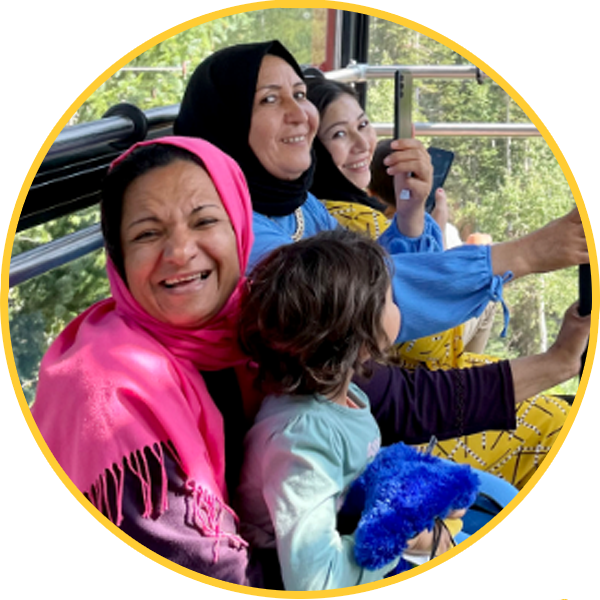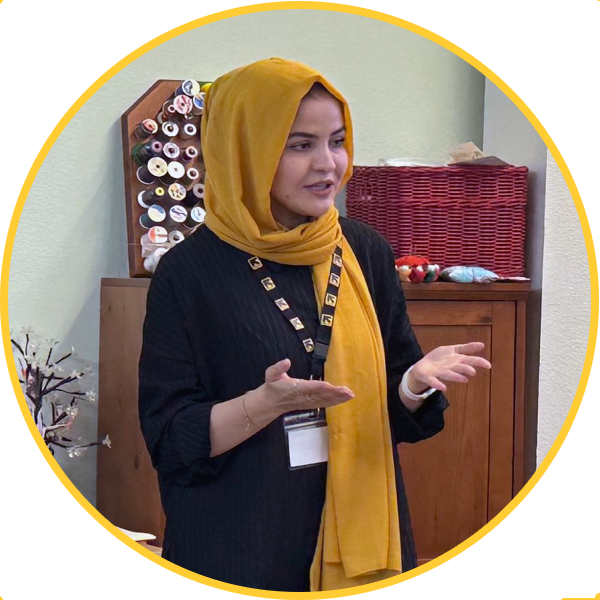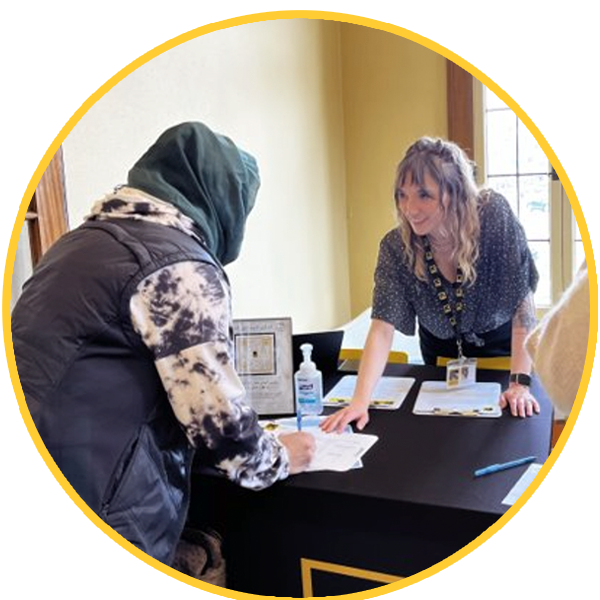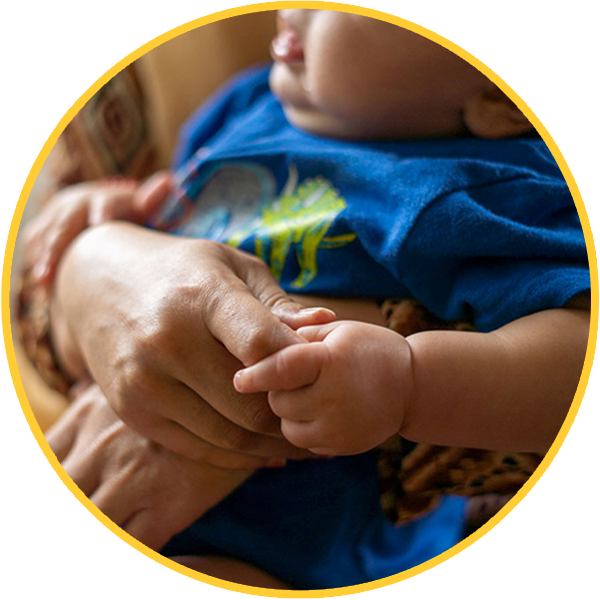
Supporting innovative ideas across the country
NRC-RIM and our partners at the International Rescue Committee (IRC) are working with 10 local IRC offices across the country to support the healthcare needs of Afghan new arrivals.
Their initiatives range from healthcare navigation, mental health, women's health, digital literacy and more. They are working with their own local partners and local Afghan communities to ensure these initiatives meet the cultural, linguistic, and public health needs of new arrivals.
NRC-RIM intends to turn the work of many of these offices into toolkits so organization across the country can support Afghan communities that they serve. Sign up for our newsletter to be the first to know when they come out.
Atlanta, GA
The IRC in Atlanta is working to improve Afghan newcomers’ health and well-being by developing and implementing a culturally-tailored home visiting program and by sharing health materials in Dari and Pashto with the Afghan community.
IRC-trained healthcare navigators from the Afghan community meet with Afghan families in their homes to conduct comprehensive health needs assessments to evaluate the types and levels of health services needed. Initial home visiting sessions focus on building rapport, assessing the family’s understanding of the U.S. healthcare system, and better understanding the family’s health needs and concerns.
Healthcare navigators then partner with families to develop an individualized health empowerment plan. The health empowerment plans can include teaching families how to make appointments, take the bus, ask for an interpreter, use a pharmacy, understand and manage a medical condition, and establish family wellness goals.
Through this program, the IRC in Atlanta has seen a significant increase in the number of clients who are able to independently navigate the healthcare system, access needed medical services, and manage health conditions. IRC Atlanta also leverages their multi-sector community partnerships to attend community fairs and disseminate culturally and linguistically appropriate health education materials to the Afghan community.
Denver, CO
New arrivals from Afghanistan have numerous barriers to successful healthcare navigation, including transportation, language, and literacy. Through individual support and group classes, the IRC in Denver is empowering Afghan newcomers with the information and support they need to access healthcare in their new community. IRC in Denver initiated a localized and innovative healthcare navigation education approach called the “Health and Wellness Workbook" program. IRC staff meet with families to best understand their individual and family health needs, schedule initial medical appointments, and conduct local health service mapping.
Families then participate in individual and group classes to learn about levels of healthcare, preventative care, how to schedule doctors’ appointments, and how to identify sustainable transportation to access healthcare. At the end of these healthcare navigation education sessions, families are provided a personalized “Health and Wellness Workbook” that includes pictures, addresses and phone numbers of their healthcare providers, pharmacies, and bus routes, as well as curated information about health conditions, medications, and interpretation and translation needs that newcomers can show medical providers.
Oakland, CA
Many Afghans evacuated through Operation Allies Welcome have been exposed to decades of violence, are separated from loved ones who remain in danger in Afghanistan, and experience ongoing stress as they seek to adjust in the U.S. The IRC in Oakland is focusing on promoting healthy relationships and supporting the mental health of Afghan children through culturally and linguistically responsive support group initiatives.
The IRC in Oakland conducts support groups for Afghan teens ages 13-18. With input and support from the Afghan community and support group participant feedback, the IRC adapted an adjustment support curriculum called “Pathways to Wellness” to best address the needs of newcomer Afghan youth. The support groups are eight weeks long and include topics such as stress management, self-empowerment, and healthy relationships.
With the support of the University of California San Francisco and the Center for Adjustment, Resilience and Recovery, the IRC in Oakland team is also implementing “Attachment Vitamins,” an evidence-based trauma mitigation intervention for caregivers with children ages six and under. IRC worked with the developers of “Attachment Vitamins” and the Afghan community to tailor the intervention to be culturally responsive and linguistically accessible. During the course's nine modules, participants learn about early childhood social-emotional development, the impact of stress and trauma, reflect on the possible meanings of children’s behaviors, explore the influence of culture on families' socialization goals, and become familiar with strategies aimed to promote secure attachment and safe socialization practices.
Sacramento, CA
IRC in Sacramento is working to promote healthy lifestyles, preventative care, and mental health and wellness among Afghan women new to the U.S. IRC hosts weekly wellness workshops featuring guest speakers on key health topics identified by the Afghan community. During these sessions, IRC pairs health and behavior change education with resources for practical application. Topics and material resources for wellness workshops have included summer and water safety with life jacket donations and dental health and dental insurance classes with free dental screenings and free dental hygiene items. IRC also participates in local health fairs to disseminate culturally and linguistically appropriate Afghan health promotion materials and to invite attendees to IRC’s Afghan women’s support groups.
IRC in Sacramento provides ongoing 8-week adjustment support group interventions through the “Pathways to Wellness” curriculum. Afghan staff have adapted the “Pathways to Wellness” curriculum to ensure linguistic and cultural appropriateness for Afghan female participants and to reduce stigma around mental health topics. Classes are held virtually and in-person and include exploring coping skills, self-care, and the impacts of stress and traumatic events.
“Before I started speaking with Hafiza Jan [IRC staff member], I was completely confused, I didn't know where to start, I was always confused and worried, and I felt so depressed. I was not able to talk with anyone, and I was crying all the time. Since I started talking with Hafiza Jan, and the information Hafiza shared with me during the SPR sessions, I can manage my problems and think positive. Using the information and techniques I received from Hafiza through the SPR sessions, I could get rid of my sleep problems and anxiety. Talking to Hafiza makes me feel better every week. Thank you for your help and support.”
-IRC Sacramento Client
Salt Lake City, UT
IRC in Salt Lake City conducted a health needs assessment (HNA) with Afghan women and local health providers to better understand Afghan women’s sexual and reproductive health (SRH) needs and barriers to SRH care. Based on these findings, IRC is working with health systems in the Salt Lake City health system to ensure more rapid access to SRH services, including integrating SRH questions during initial medical screenings. To help ensure Afghan women can make informed decisions, the IRC has translated multiple medical forms and patient resources in Dari and Pashto.
IRC in Salt Lake City also works in communities to promote women’s wellness and empowerment by holding weekly SRH education classes in Dari and Pashto on key topics such as contraceptive options, prenatal care, and women’s wellness and health. These classes provide an opportunity for Afghan women to try new things, make social connections, and become familiar with aspects of their environment beyond their neighborhood. They also serve as a safe place for women to express other resource needs and are often an entry point for referrals to other services.
San Diego, CA
IRC in San Diego focuses on Afghan women’s physical and emotional well-being by hosting a series of Q&A sessions called “Dialogue with Doctors” and facilitating maternal support groups. “Dialogues with Doctors” sessions provide an opportunity to address and discuss Afghan women’s health concerns, such as anemia, diabetes, hypertension, breast cancer, and post-partum care. IRC prioritizes identifying health providers who are from Afghanistan for their “Dialogues with Doctors” series to ensure alignment of culture and language and to increase trust and engagement.
IRC’s maternal support groups provide Afghan women the opportunity to socialize and learn more about health and wellness through additional educational sessions with local service and health providers. Women choose the topics they are most interested in, and IRC helps arrange subject matter experts as speakers. For instance, when Afghan women expressed an interest in car safety, the IRC arranged training that included the free distribution of car seats. These sessions, housed within the IRC’s Women’s Resilience Center (WRC) at the San Diego office, promote active engagement with the local health services, provide additional health education, and create an opportunity for Afghan women to gather outside of their homes. In addition, Afghan women participating in NRC-RIM programming can benefit from various services offered by the WRC including English conversation sessions, workshops on self-care and financial wellness, support groups, and physical activities. The center includes an area for children to play, a sewing and craft area, and a comfortable living room space, allowing women to feel at ease bringing their children while participating in programming and socializing with other participants.”
Spokane, WA
IRC in Spokane has developed a 5-week Digital Literacy and Health Access class to assist Afghan newcomers in independently navigating the highly complex and increasingly digital U.S. healthcare system. Classes assist Afghan families in developing the digital literacy skills needed to navigate health services and teach participants how to use electronic devices, apps, and portals, create email accounts to access medical charts, utilize browsers to find local health clinics, and schedule transportation covered by Medicaid. IRC staff assesses participants’ digital literacy levels and enrolls them in group or individual classes with one-on-one tutoring support. Many families lack the hardware to engage with the health system digitally; therefore, the IRC partners with InterConnection to ensure that all families who complete the program receive a laptop to ensure sustainable digital access and independent healthcare navigation for Afghan families.
Because high lead levels are common in newly arrived Afghan children, the IRC in Spokane partners with the Spokane Regional Health District and the Spokane Department of Health to increase awareness of lead poisoning and mitigate familiar sources of lead in the home. Many pressure cookers brought from Afghanistan have high lead levels, as does Surma, a traditional eyeliner commonly used in the Afghan community. With its partners, IRC hosts regular lead testing events and pressure cooker exchanges and outreaches to local store owners that sell traditional pressure cookers, connecting them with suppliers that sell toxin-free cookware. In partnership with the Spokane Regional Health District, the Spokane Department of Education, and the Spokane Department of Health, the IRC is creating a health education campaign with Dari- and Pashto-educational videos addressing lead poisoning and identifying healthy and toxin-free cookware options available in the U.S.
Tucson, AZ
Community service mapping in Tucson revealed a gap in culturally and linguistically appropriate early childhood interventions for Afghan newcomers. To fill that gap, the IRC in Tucson focuses on empowering Afghan parents of children ages two and under by increasing their understanding of developmental milestones, supporting them in accessing needed pediatric well-child visits, and providing education on fostering healthy relationships between parent and child. This includes virtual and in-person classes on subjects such as developmental milestones, healthcare navigation, preventative care, lead poisoning, U.S. childhood vaccination schedules, nutrition, and more. IRC staff distributes early childhood development kits to families with age-appropriate toys, linguistically accessible children’s books, and laminated step-by-step guidelines in Dari and Pashto on engaging children two and under. Where needed, IRC staff work one-on-one with parents to teach them how to schedule medical appointments, arrange transportation, and better understand the U.S. healthcare system so that Afghan parents are empowered to support their children’s well-being and development.
